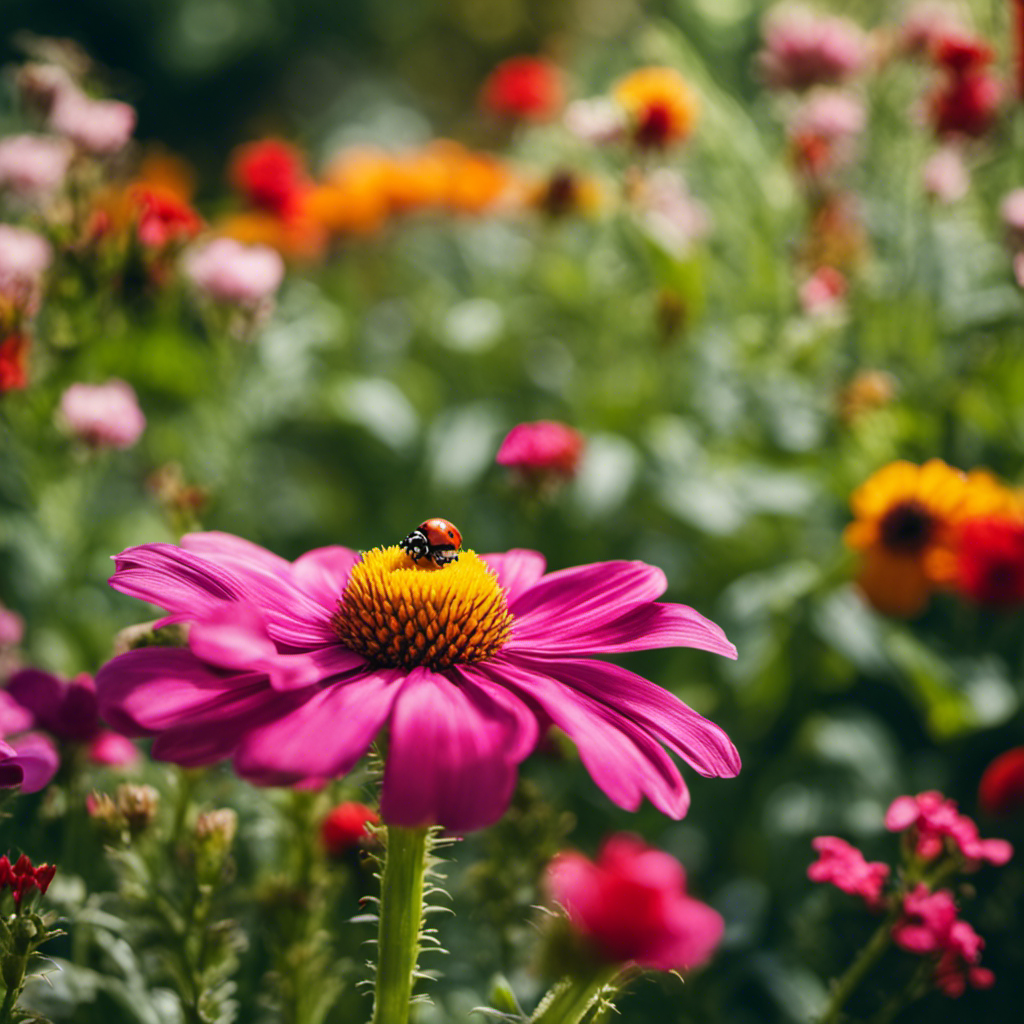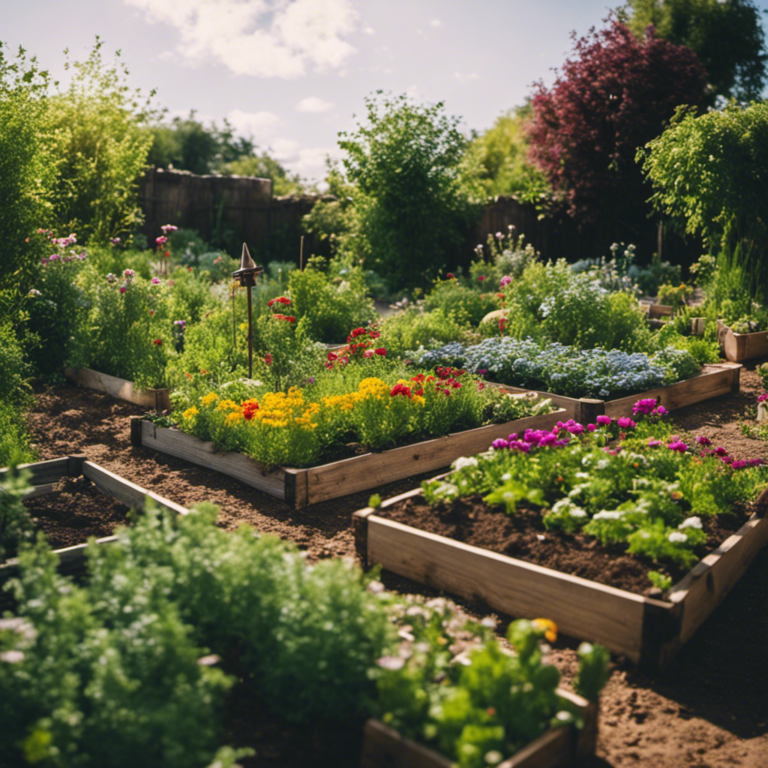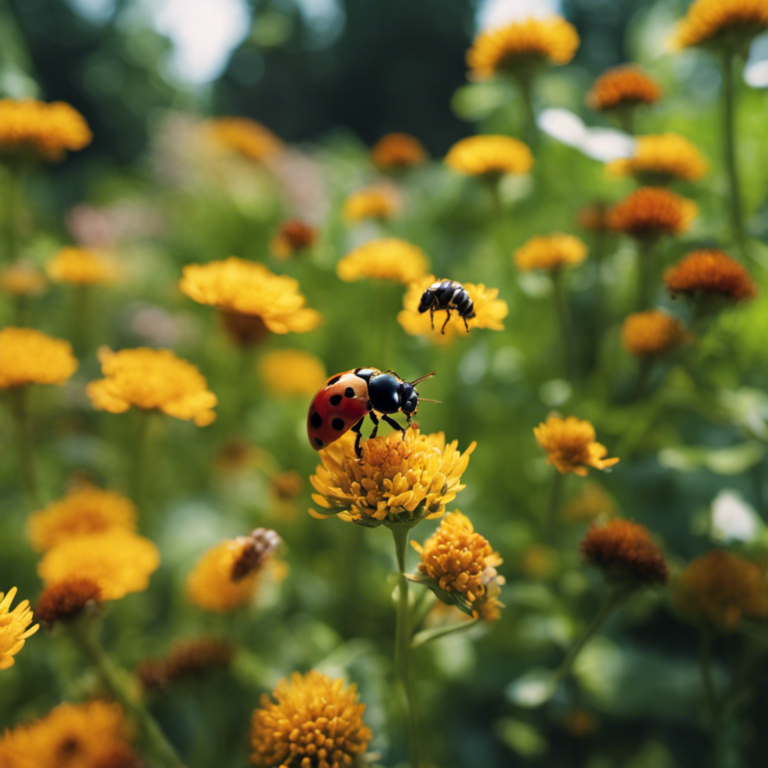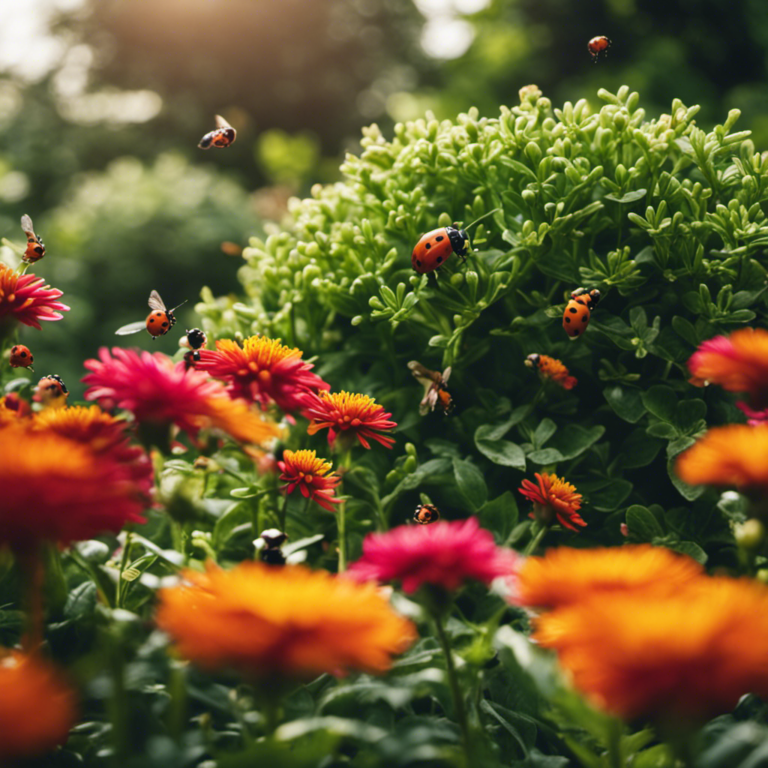Are pesky garden pests causing damage to your plants? Don’t worry! This guide will provide you with effective and natural methods to eliminate these critters without the use of harmful chemicals.
With the knowledge shared here, you’ll discover the power of companion planting, organic insect repellents, physical barriers, beneficial insects, and cultural practices.
By implementing these techniques, you can reclaim your garden and create a harmonious environment for your beloved plants. Bid farewell to pests and welcome a thriving garden!
Key Takeaways
By using these natural methods for pest control, you can effectively get rid of pests in your garden without harming the environment or relying on harmful chemicals. Some people may argue that these methods require more effort and time, but the sight of a beautiful, thriving garden free from pests is a powerful motivation.
Taking a proactive approach and working with nature not only protects your plants, but also promotes a healthier and more sustainable ecosystem in your garden. It’s important to understand that using natural pest control methods is beneficial for both your garden and the environment.
Companion Planting
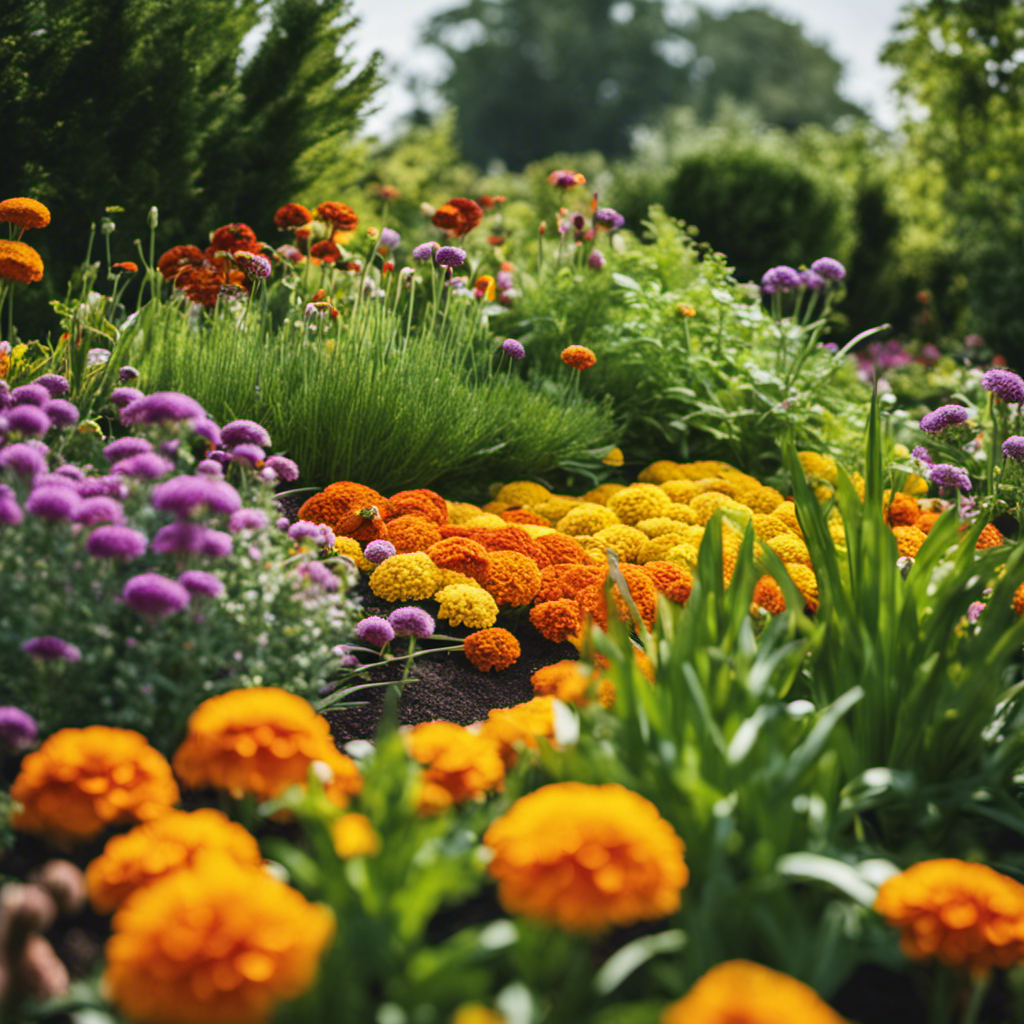
Companion Planting: A Natural Solution for Garden Pest Control
When it comes to controlling garden pests in a natural and effective way, companion planting is a valuable technique to consider. By strategically planting specific crops together, you can create a balanced and pest-resistant environment that promotes healthy growth. One of the key aspects of companion planting is selecting plants that have beneficial properties, such as repelling pests or attracting beneficial insects.
For example, planting marigolds alongside your vegetable crops can help deter aphids and nematodes. These vibrant flowers emit a scent that these pests find unappealing, keeping them at bay. Similarly, herbs like basil or dill can attract pollinators and predatory insects that feed on garden pests, helping to maintain a natural balance.
Another important practice to incorporate is crop rotation. By alternating the types of crops you grow in different areas of your garden each year, you can prevent the buildup of pests and diseases that are specific to certain plants. This simple technique can significantly reduce the risk of infestations and ensure the long-term health of your garden.
By embracing companion planting and implementing crop rotation, you can naturally control garden pests without relying on harmful chemicals. Not only will you enjoy a thriving and pest-free garden, but you’ll also contribute to a healthier and more sustainable ecosystem.
Organic Insect Repellents
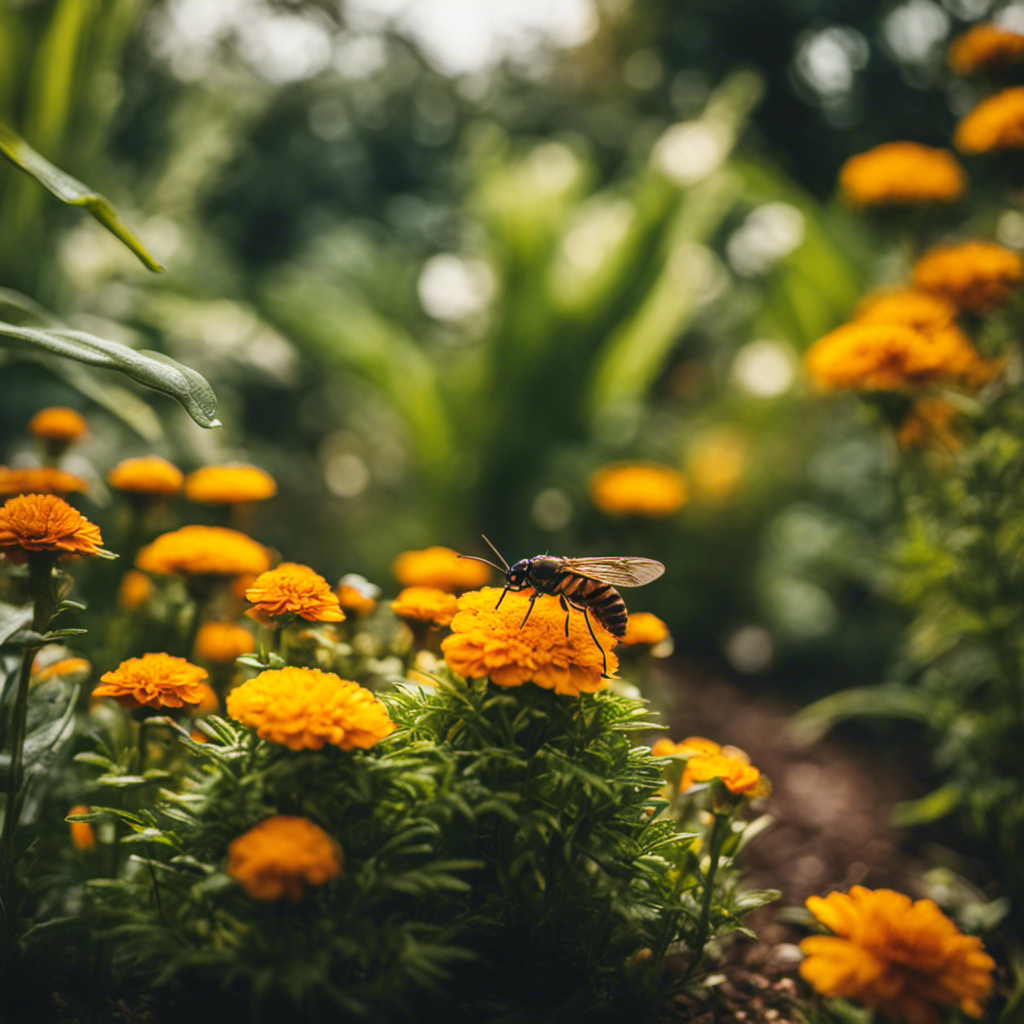
If you’re looking for a natural and chemical-free way to protect your garden from pests, consider using organic insect repellents. These remedies not only keep unwanted insects away but also promote the overall health and vitality of your plants.
Essential oils derived from various plants have shown to be effective in repelling insects. Here are some options to consider:
- Citronella oil: With its strong scent, citronella oil acts as a potent mosquito repellent.
- Peppermint oil: The refreshing aroma of peppermint oil deters ants, aphids, and beetles.
- Neem oil: This versatile oil repels a wide range of pests, including mites, caterpillars, and whiteflies.
- Garlic oil: Garlic naturally has insecticidal properties, making it an excellent choice for repelling pests like aphids and spider mites.
Physical Barriers
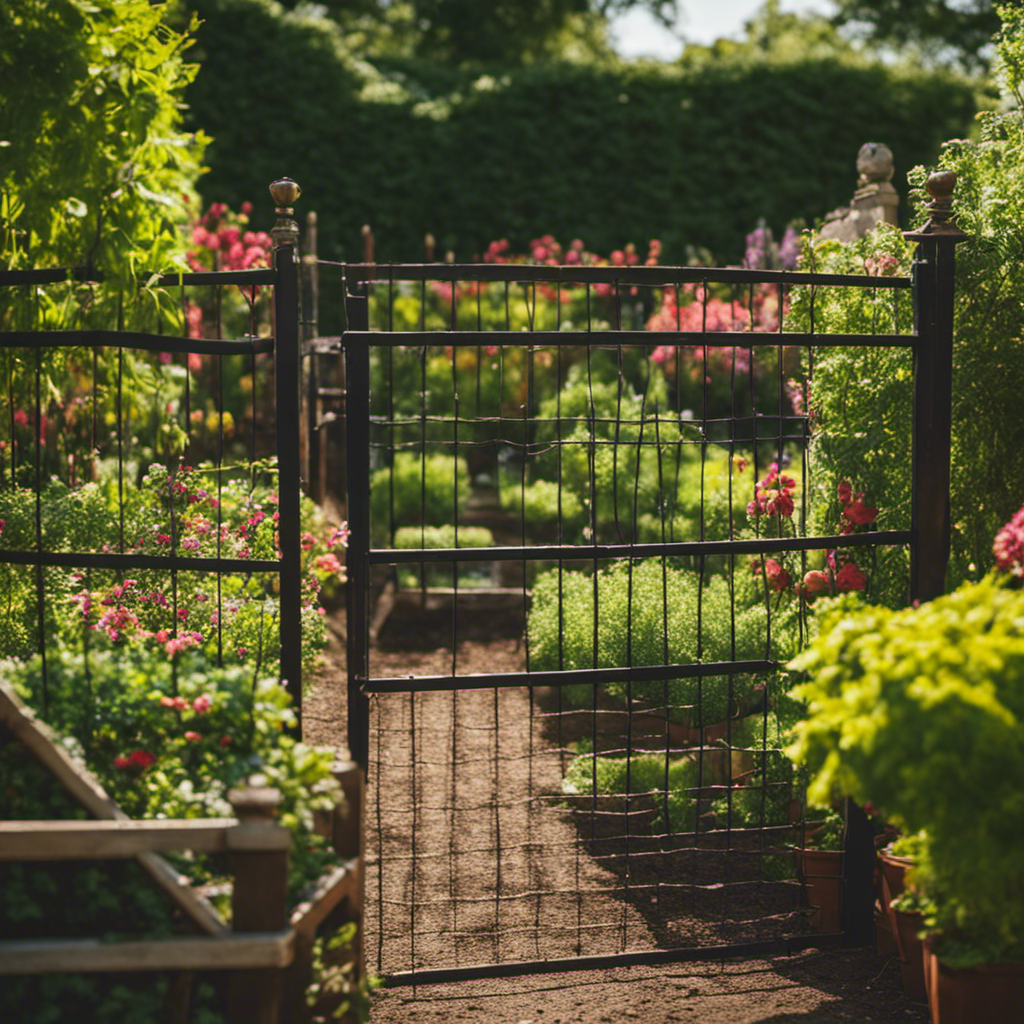
To protect your plants from garden pests, you can use different materials and techniques to create physical barriers.
One effective method is to utilize vertical gardens, which not only maximize space but also act as natural deterrents for pests. Vertical gardens can be made using trellises, fences, or hanging baskets, creating obstacles that pests must navigate around.
These barriers make it challenging for pests to reach your plants, reducing the risk of damage and infestation.
Another option is to install netting or wire mesh around your garden as an additional layer of protection. These barriers are easy to set up and provide a long-lasting solution to keep pests away.
Beneficial Insects
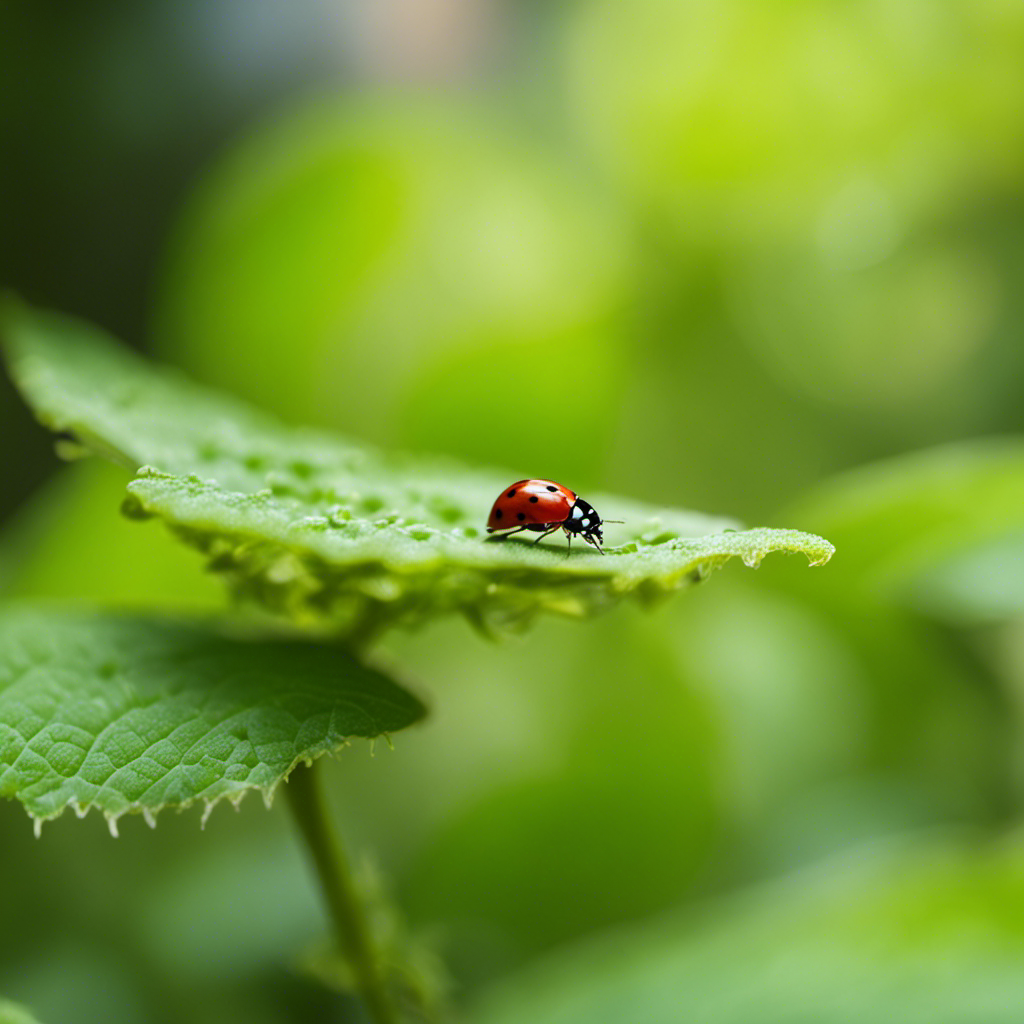
Attracting and utilizing beneficial insects is a great way to protect your plants from garden pests. These insects offer natural pest control and help maintain the health of your garden.
Here are two ways in which beneficial insects can benefit your garden:
-
Attracting pollinators: Many beneficial insects, such as bees and butterflies, play a crucial role as pollinators. When you attract these insects to your garden, they help with the pollination of your plants. This leads to better fruit set and increased yields, ensuring a bountiful harvest.
-
Natural pest control: Ladybugs and lacewings are examples of beneficial insects that feed on common garden pests like aphids and caterpillars. By encouraging these insects to inhabit your garden, you can reduce the need for chemical pesticides. This promotes a healthy balance between pests and beneficial insects, creating a more sustainable and eco-friendly garden.
Cultural Practices

Looking for natural ways to get rid of pests in your garden and keep your plants healthy? Implementing proper cultural practices is the key. Two important practices to consider are crop rotation and proper watering.
Crop rotation involves changing the location of your crops each season. This disrupts the life cycles of pests that may have become established in one area. By rotating your crops, you reduce the likelihood of pests returning year after year.
Proper watering is essential for maintaining plant health and deterring pests. Watering deeply and infrequently encourages the growth of deep roots, making plants more resilient to pests. Additionally, watering in the morning allows foliage to dry during the day, reducing the risk of fungal diseases.
By incorporating crop rotation and practicing proper watering techniques, you can create an environment that is less attractive to pests while promoting the overall health of your garden. Check out the table below for a quick reference on how to effectively implement these cultural practices:
| Cultural Practice | Description | Benefits |
|---|---|---|
| Crop Rotation | Changing the location of crops each season | Disrupts pest life cycles, reduces pest recurrence |
| Proper Watering | Watering deeply and infrequently, watering in the morning | Encourages deep root growth, reduces fungal diseases |
Conclusion
By implementing these natural pest control methods, you can effectively eliminate garden pests without harming the environment or using harmful chemicals.
While some may argue that these methods require more effort and time, the visual representation of a lush, thriving garden free from pests serves as a powerful motivation.
Taking a proactive approach and working with nature won’t only protect your plants but also promote a healthier and more sustainable garden ecosystem.
